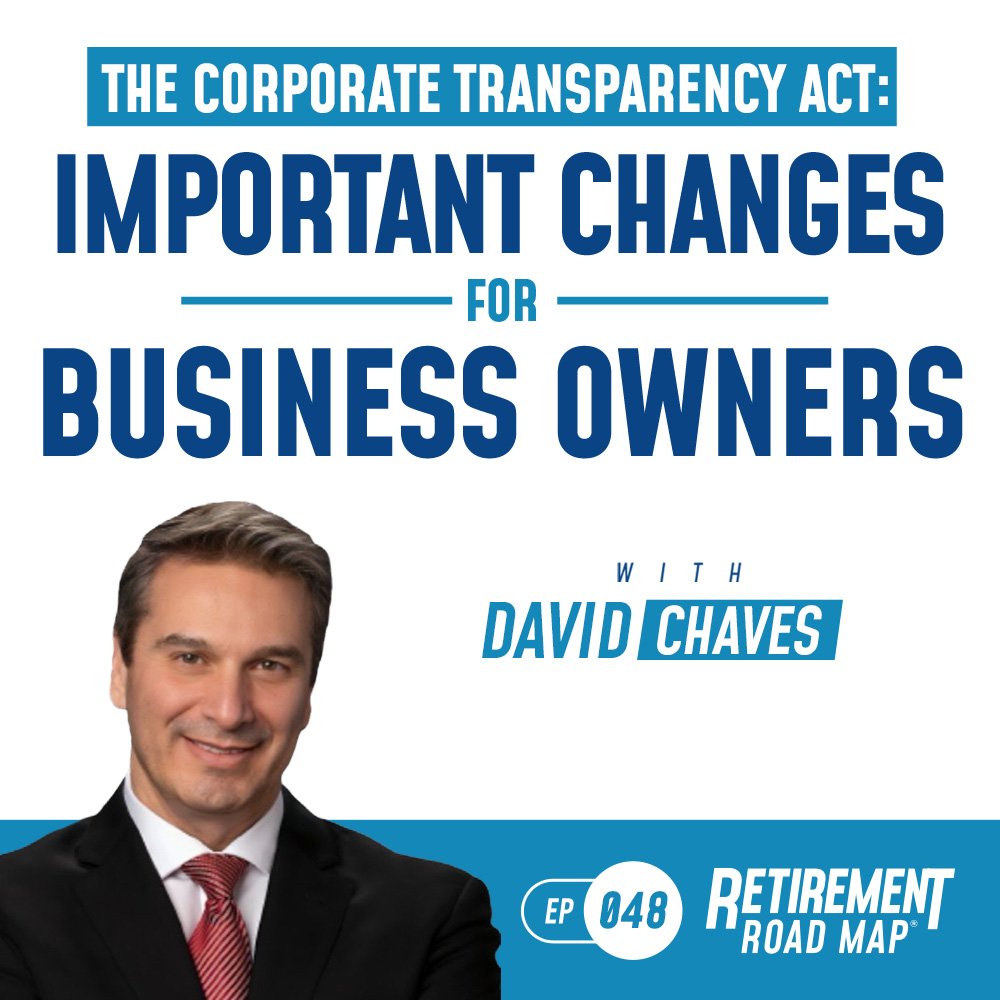With income tax season in the rearview, some people tend to shift their focus to saving toward a child’s education. This time of year, we’ll often hear questions like: What are the best options? Wasn’t there something new about 529s in SECURE Act 2.0? Has anything changed?
If you’re someone who has any of those questions (or others!) and you want to start preparing for your child’s (or grandchildren’s) education, this episode has everything you need to know about 529 Plans, including information on the changes that apply to 529s.
In today’s conversation, our very own Mark Kenney and Matthew Peck dig into how you can maximize the tax advantages of a 529 plan to offset college costs, the benefits of contributing to 529s at any stage of life, and how recent changes to the tax code affect 529 contributions. If you have questions, we have answers. Enjoy!
In this podcast discussion, you’ll learn:
- How 529s are structured, who can contribute to them, and the major tax advantages of these funds.
- How retirees can contribute to kids, grandkids’, and others’ 529s.
- The options that are available if a 529 plan beneficiary doesn’t go to college.
- Why a 529 plan doesn’t negatively impact financial aid or student loan eligibility.
- Why investing in 529s should probably come after your 401(k).
Inspiring Quotes
- “You have to really dig in and understand who is it that we’re sitting down with. Take the time to communicate and understand where they’ve been, where they are, where they want to go, and just understand. That’s an important piece of planning.” – Patrick Randall
- “When you reach retirement, you might look for an occupation part-time or something like that. And you might be extremely passionate about what you did for most of your life but there’s nothing stopping you from something that you had to forego early on or maybe an occupation or field that you really wanted to explore if you never got the chance to. There’s nothing holding you back.” – Jack Tomczyk
Interview Resources
- Mark Kenney on LinkedIn
- Fidelity
- FAFSA
- Pell Grant
Matthew Peck: Well, welcome, everyone, to another edition of the SHP Retirement Roadmap Podcast. I’ll be your host today, Matthew Peck. I’m joined by our old friend, Mark Kenney. So, for any listeners who have missed some of our early episodes, Mark has been with SHP now for close to six years or since 2017 and we’re very, very happy to have him on. It’s one of those things that we’re very proud of the team that we have here and making sure that everyone has a chance to really contribute to the podcast. Because we’re a team when we deal with our planning for our clients but we’re also a team when it comes to producing content and talking about good information that we hope that you’re going to enjoy and, obviously, to take some value out of. Mark is a CFP or a Certified Financial Planner. I’m also a fellow CFP. I have to certainly toss that in as well. We have all the tattoos. It’s a weird cult thing. Like, once you learn it, then it’s okay. But also, as a CTS, a Certified Tax Specialist as well.
And so, today we’re going to be diving into 529s. You may or may not notice the time of year that it is. And so, we’ll kind of let that little Easter egg be out there so you can figure out why are we doing it in and around late May here. But the whole idea is to dive into 529s. What are the basics of it? What have been some of the updates that have happened to 529s? And then also just kick around the bigger question of how important is it to go to college? I mean, the tuition costs have continued to grow year after year after year. Obviously, student loans are always in the news about forgiveness and do we write them off? Not write them off? And everything that happens during the current administration. So, 529 themselves are a, I won’t necessarily say a hot topic, but certainly, that’s something that everyone truly needs to understand what the updates are and then just can really discuss the importance or what is the modern value of a degree and is it worth it or not? Because I’m sure questions, Mark, I’m sure you’re getting plenty of client questions about that.
Mark Kenney: Yeah. Especially with the cost of college rising and it being so prevalent in the news of how to pay for college, we thought this was a great time to look at one of the vehicles that you can utilize to help offset those costs. So, let’s first get into what is a 529. A 529 is essentially a tax advantage savings account earmarked for mostly college education expenses, although you’ll see they’ve kind of opened it up to other educational expenses besides college. So, what it does is a participant will open an account for a beneficiary. So, in most cases, a parent will open the account for the benefit of their child. So, I have one. I opened it for my son. I’m the owner of the account, which is important, and he is the beneficiary. The owner controls the account, controls the investments in the account, but anyone can put money into it. And why that’s important is we all know kids may get checks from aunts, aunts, grandparents, cousins. Those payments can go into a 529 as well.
So, anyone can add money to it and it’s for the beneficiary for the child’s college education expenses. That money is invested. A lot of times these 529s will have target-dated funds so much like a retirement account may target when you’re 65, a college company target when you’re 18, because that’s most likely when the funds will be utilized. So, you can invest this money according to the age of the child, let it grow. And one of the huge tax advantages is that when the money is withdrawn for a qualified expense, it is not taxable to the beneficiary or to the student.
Matthew Peck: Let’s go back to the contributions now too. So, okay, so if it grows tax-free, it’s almost like let’s walk through the mechanics of it too. So, you talk about how you opened one up and that was for Jack, right?
Mark Kenney: That was for Jack, my son, Jack.
Matthew Peck: Nice. All right. So, we’re not planning on a big soccer…
Mark Kenney: Scholarship?
Matthew Peck: Scholarship, yeah. Is there anything planned?
Mark Kenney: I hope so but let’s plan for the worst.
Matthew Peck: Yeah, you never know. You know, it’s a tough gig out there. All right. So, whether it’s you as the owner or aunt, uncle, grandparents, etcetera, is the owner able to write off anything that goes in? Are there income limits? Let’s talk about money going in on the first pass.
Mark Kenney: Yeah. Great question. So, it’s kind of almost like a Roth IRA in that the contributions that you or any family members make is not tax deductible. So, you cannot offset that. The tax advantages for a 529 are let the funds grow what we call tax deferred. So, if you buy fund X for $1,000 and it’s worth $3,000 the next year, there are no taxes owed. And then most importantly, when the funds are withdrawn, so when they’re taken out, again, usually at 18, 19, although it doesn’t have to be, all the gains, just like a Roth IRA are tax-free if they’re used for what they call a qualified expense. Now, I will make a note that some states offer small state tax benefits too if you use the state-specific plan. Now, every state has a plan that they incorporate with a provider and Massachusetts happens to be Fidelity and you get a very small, and I say very small, a state tax deduction if you use the Fidelity plan. And some of the common misconceptions is that, “Well, if I open up a Massachusetts plan, my child has to go to school in Massachusetts.” That’s not true. They can go to any college, any third-level education but there is a small state tax incentive. But that’s really the only tax deduction you get. Now, again, kind of like a Roth IRA, the funds grow tax-deferred. They’re taken out tax-free later on.
Matthew Peck: So, let me kind of also split it up a little bit to talk about when you first approach them. So, obviously, as an advisor, primarily, your clients are 60, 65, and above, is that correct?
Mark Kenney: Yes.
Matthew Peck: Okay. So, then walk me through how if now, but then you’re also a parent. So, I mean, how often? Does this come up a lot during your conversations with clients about 529s? Because I also know that there’s something called the supermax where people can sort of forward a lot of their gifts into it. So, almost take it through like, okay, here’s a 529 from a grandparent’s perspective versus here’s a 529 from a parent perspective.
Mark Kenney: Great. Yeah. So, this is how we utilize it for someone who has grandchildren and they want to give them money but they don’t just want to give them money so that they can go waste it and buy a car. So, grandparents want to have some control over how the funds will be utilized. So, in that case, what a great scenario is the grandparent opens the 529 account. Therefore, they are the owner. They name the beneficiary, their grandchild, and they can fund it. And as Matt was alluding to, one of the benefits of 529 is you are allowed five years’ worth of gifting. Okay. So, remember, you’re allowed to gift a certain amount of money. I think it’s, what, 16,000, 17,000 each year.
Matthew Peck: Yeah. That’s 17,000.
Mark Kenney: Seventeen thousand is what you’re allowed to give to every individual every year without it being taxed, without any tax implications but with a 529, you’re allowed to do five years’ worth of gifting in one year. So, if you want to reduce your estate and you want to gift your grandchild money and you don’t want it to be taxable, you can basically put in five years’ worth of contributions into that 529, not have it taxed, not have the beneficiary, the student taxed on it, have it grow, and then again they can take it out tax-free and you control how the funds are invested. And quite frankly, one of the benefits of being the owner is that you can actually change who the account is for if there’s another grandchild. So, one question we get is, well, what if my grandchild doesn’t go to college? You can actually change who the account’s for, changing it to another grandchild or another immediate family member without tax consequences.
Matthew Peck: Which is amazing. So, think about that for a second, folks. I mean, let’s just say, could we talk about $17,000? So, now let’s say the grandma and a grandpa and they both have 17,000. Now, we’re talking $34,000. So, if you do $34,000 times five, I mean, that’s basically what? 170?
Mark Kenney: $170,000.
Matthew Peck: Yeah, $170,000 that you can now eliminate or get out of your estate. So, it lowers your particular estate taxes while at the same time ceding the college education fund for a grandson or a granddaughter. And now if you have multiple grandsons or granddaughters, now, it becomes a massive amount of gifting that can happen that can, again, lower your estate tax. And certainly, in Massachusetts, I know there’s legislation going back and forth about potentially increasing it but still, Massachusetts we’re lurching back towards or I should say, maybe not lurching, heading back towards our old moniker of Taxachusetts especially with the millionaire’s tax that’s out there nowadays. So, taking advantage of something like this, I call it supermax or over funding of 529 is a great technique if you are obviously in that position to be able to gift that much.
Mark Kenney: Yeah. And a lot of these 529s, they have huge, huge contribution amounts. I think it’s close to $300,000, $400,000 you were able to put into a 529. So, you don’t have to worry about putting too much money in there. And then again, being the owner of the 529, you can change who the account is for later on down the road if that child doesn’t use it for all of their college expenses.
Matthew Peck: And we’re definitely going to dive into what happens if a person doesn’t go or if a beneficiary does not go to college. What happens then? But let me just go back really quick so I clarify as well. So, Mark, let’s just say it’s a grandparent. They’re the owner but then they pass away, let’s say. So, let’s say it’s your dad and then your dad passes away, then you become the owner. Do you see what I mean?
Mark Kenney: Yeah. So, great question. Usually, and I encourage everyone, especially grandparents, when they open a 529, they are what you can call the custodian. You can name just like a trust, a successor custodian or a successor trustee that will come in and manage that account for that child. So, you can do that. And I would encourage do that and most times you will name the parent of their so that the account stays with the child so they’re having to go through the probate system, which you probably would if there was no successor custodian on the account.
Matthew Peck: Okay. Alright. So, literally, when you set up the account, you’re obviously setting up the beneficiary, who the account is for. And then also, if you’re the owner, you want to have a successor owner. Usually, if it’s a grandma, grandpa, they’ll name each other, of course, but then you might want to name the parent of the beneficiary next. So, as you mentioned, Mark, just to avoid probate certainly just with a – if you can avoid probate with a piece of paper.
Mark Kenney: Yeah.
Matthew Peck: Yeah.
Mark Kenney: For efficiency purposes. It’s just writing an extra name and extra Social Security number on a – and it’s peace of mind.
Matthew Peck: Right, exactly. So, okay, I have one more question on the 529. So, like the mechanics of it and only because I get it a lot and I honestly, frankly, I’m not too clear on it because I think I understood it once and then I lost it and I got it and I lost it again. What’s the impact of student loans? Do you know that?
Mark Kenney: When you’re saying student loans, I think you’re most likely talking about student aid. Okay.
Matthew Peck: In other words, yeah. So, the beneficiary applies. Let’s say it’s Jack. Jack’s the beneficiary. Now, he has a 529 in his name. And I’ve heard that there’s differences between if the parent is the owner versus the grandparent being the owner and the impact on FAFSA and Pell Grants and whatnot.
Mark Kenney: Again, I go back to misconceptions. I have somebody who will say, “Well, I don’t want to open a 529 because the money in there will be less likely that my child gets financial aid.” And that is not true. Okay. You go to apply for the FAFSA, they will ask about a money in the child’s name and assets that are in your name. And there is a formula that is utilized and, believe it or not, assets that are in the child’s name so you have an UTMA, which is a minor account or the child has a savings account. Those assets are weighted more heavily towards not getting financial aid than a 529. A 529 is asked about and it does come into the formula but at a fraction of the weighting towards financial aid. So, it doesn’t make it that the child would not receive financial aid in that case. And believe it or not, Matt hit on it, even less so when it’s the grandparent who’s the owner. So, if the grandparent owns the 529, it’s really not counted at all because they have nothing to do with the dependency of the child. And if the parent does own it, it’s weighted at a very small percentage. It used to be like 5%. I think it’s even less that in the weighting formula. And yeah, so it’s not a reason to not fund a 529 because there has a small weighting.
Matthew Peck: All right. Excellent. So, now before we get back to the 529s, I just want to point out really quickly how you know you’re dealing with a finance geek when he just randomly drops UTMA on you. So, an UTMA is Uniform Transfer to Minors Act but we live in a land of acronyms. We’re talking about FAFSA and all that other world of stuff but, yeah, when Mark drops an UTMA on you, that’s what that stands for is a Unified Transfer to Minors Act or like another way of gifting, which is a whole other podcast to itself about other ways of sort of setting up a grandson or a dependent or a granddaughter, whatever that may be, or a son or a daughter for that matter as well. But there’s a whole other world of UTMAs and uniform minor gifts. There’s UMGA as well, and they’re all slightly different.
Mark Kenney: We’ll save that for another podcast.
Matthew Peck: We’ll save that for another podcast. Absolutely. But I always get a kick out of when guys and gals like us just drop acronyms like, “Oh, they must know what we’re talking about.”
Mark Kenney: Yeah, there’s a lot of it. I apologize. There is a lot of acronyms in finance but, yes, instead of a savings account in the child’s name, where it’s more taxed and, again, more heavily weighted, a 529 gives you a little more tax efficiency and a little less weighting on the FAFSA formula.
Matthew Peck: Which, again, I love that explanation especially on the 529s specifically because that was always a big question that we have. And now let’s get to the biggest question, which is what if my son, daughter, grandson, granddaughter does not go to college? What then?
Mark Kenney: Yeah. That’s a great question. First, I want to say, like, what is a qualified expense? So, a lot of people think that, okay, this money can only be used if my son, Johnny, goes to Stanford. And that’s just not true. It really opens up for any third-level education. So, that could be a training school, a beauty school, any school that’s post-high school or any further education beyond that. And it’s not just tuition. It can be tuition, books, room and board, computers, fees, health insurance. So, there’s a wide gamut of expenses that are qualified. Now, recent legislation has even opened up more that now up to $10,000 of the 529 can be used for private high school. Okay. So, if you are putting a 529 and there’s money in there, you can now use it for a private high school to $10,000 a year. And moreover, you can use $10,000 of it per year to utilize for student loan payments. So, again, what they’re trying to do is encourage you or to utilize 529s as this tax advantage vehicle, opening up the number of qualified expenses that you can utilize the money for.
But let’s play devil’s advocate and like Matt said and say, let’s say they don’t want to go to school or they don’t want to do any sort of third-level education. Maybe they want to open up their own business or backpack Europe. That is not…
Matthew Peck: Or Jack becomes the world’s greatest soccer player or you got Messi, Ronaldo, and you’ve got Jack Kenney. Yeah, exactly.
Mark Kenney: I hope it comes to that. If that happens, so there’s a couple of things that you can do. One, again, as the owner of the account, so me as the parent of that account, I would change the beneficiary to my daughter, Sirsha. So, I can do that as the owner. Let’s say my son doesn’t go to college. I can then change who the account is for and name my daughter. Maybe she’s more likely to do that. So, one thing is changing who the account is for. The IRS lets you change it to any immediate family member. So, maybe you hold onto the account and you give it to a grandchild if your children have children or maybe you give it to her niece or nephew. You can do that. Okay. Two other things that you can do. Any money that is withdrawn from a 529 that is not used for qualified expenses so, again, if they wanted to buy a car, the contributions, the money that you put in there all those years, that will come out without taxation. That’s because remember, you didn’t take a tax deduction when you put that money in. So, your contributions come out tax-free.
The gains attributed to those contributions will be taxed and penalized at 10% because you didn’t use them for a qualified education. But wait, there’s one more rule that just came into effect under the SECURE Act 2.0 that now will allow you to roll a certain amount of that 529 to a Roth IRA in the child’s name. So, the rule states that if you’ve had this account for 15 years and the child doesn’t use it for college expenses, the child can open up a Roth IRA. And based on their earnings and the contribution limits of that year, up to $35,000, although 529 can be rolled over year-by-year by the contribution limits into a Roth IRA to give it even more tax advantage. So, again, I bring it back to, yes, there may be a situation where if they want to buy a house or buy a car where there could be tax implications but they’re really opening a lot of avenues for you to avoid that, put it into a Roth IRA or change the beneficiary of that account.
Matthew Peck: Okay. So, let me just pick that up, too, because I do really want to hit the SECURE Act 2.0, that change, that $35,000 because I didn’t even know that was working through the system, and then I saw that report or then it passed by law and it’s like that sort of changes the landscape in a very positive way. Because now in terms of a safety valve or an outlet, I mean, I couldn’t think of a better outlet because here we are and not to digress too much but a lot of people can’t contribute. It’s a good problem to have but they can’t, they might not necessarily be able to contribute to a Roth IRA if their income is over a certain level. So, here’s a situation where there’s a certain amount going for college education and then could also be converted into Roth is just such a powerful change and upgrade and an improvement on the 529 system. So, it’s a win-win to a certain extent outside of the sort of worst worst-case scenario. But I mean, we all think of worse financially tax-wise about having to pay taxes on the gain and then a 10% excise. So, it’s like tax plus a penalty is sort of how that works. But also, I want to jump back to just the portability one last time. So, if you can change a beneficiary, can the owner become the beneficiary?
Mark Kenney: Yeah.
Matthew Peck: So, let’s just say Jack again, and let’s say Sirsha is all set too. She’s also got a soccer scholarship.
Mark Kenney: Hey, why not?
Matthew Peck: And now it’s like, well, maybe, Mark, you want to go get an MBA or you want to get a doctorate and being awesome or whatever it may be. I’m not sure what colleges offer that. But the point being is that can the owner become the beneficiary?
Mark Kenney: Yes. Actually, honestly, when I first opened up my 529, I was the owner and I was the beneficiary. I was going to have a child, didn’t know their name, didn’t know their sex. So, I opened up in my name with me, the beneficiary. And yes, again, the privilege of the rights of the owner is that you can change who that beneficiary is. So, in that scenario, my son and daughter don’t utilize it and I want to go back and get another degree, I can change who the beneficiary is, take the funds out of that 529, and use that against a qualified expense. Again, might be a certificate program but that is one of the features of being an owner.
Matthew Peck: I mean, which is fantastic, too. And maybe I’m a little sort of just maybe a little bit highbrow but the whole idea is the fact of it’s going towards education, I mean, education and eventually tax-free potentially the Roth. As I said, I can’t speak enough about that. But also, I just love what you highlighted. I mean, it’s not just college because we’re going about kind of really get into or just talk about the idea of just the value of college, which has certainly changed. And it’s funny, I was talking about it last weekend with my in-laws and whatnot. But just the idea that when you make whether it be a super funding or super maxing out a gift or whether you’re doing it for yourself or for your own kids or whatever that may be, I mean, I couldn’t think of a more noble goal than education and the fact that, again, it be trade schools and beauty schools. This isn’t just getting some philosophy major that you might not be able to really utilize in your lifetime or something that’s actually practical. The fact that you can use in all those other areas. And then worst case scenario or not worse, whatever, the fact that it can be rolled into a Roth IRA for said beneficiary is just such a powerful, powerful tool. So, something that I just really enjoyed talking about and making sure all of our listeners have a chance to really understand how powerful of a tool it is in your toolbox.
But now, okay, so we talked about a little bit off-air and then, Mark, you kind of had some information here we want to share. So, then the biggest question is, okay, how valuable is a degree nowadays? You know, in 2023 and beyond, how valuable is a degree? Because certainly, I wouldn’t say once a week but very, very often clients would come to me and say, “Well, how about if I buy my son or daughter a home or help buy them a home and get them started there on their mortgage. So, they don’t have a mortgage and now they have real estate or they have equity in real estate or they do or they just say, “Okay. Hey, let me just set something up for them that they can use whatever may be,” as compared to just sort of allocating it towards education. And what did your research show about sort of the value of a degree in the modern era?
Mark Kenney: Yeah. So, first off, the expense is tremendous, right?
Matthew Peck: It’s unbelievable.
Mark Kenney: So, I went down this rabbit hole. My son is seven and so I went to this rabbit hole like, what will a college cost in 11 years, right? And so, the cost right now is roughly like $40,000. That’s like the mean median cost of tuition and room and board at a like normal school. Obviously, there are some outliers or $70,000 universities in California, in B.U., in B.C. And so, how do we come up with this cost? And is it worth the investment? And so, I looked at the average annual earnings or the average weekly earnings of someone. And I know there’s outliers there, and I know some people say, “Well, what if someone does a trade or does something?” But statistics can be skewed but they don’t lie outright. So, right now, the average weekly earnings for someone with a bachelor’s degree is about $1,300 a week. So, that, what? $65,000, $67,000. And someone with a high school diploma is at a somewhat $781. So, quickly did the math and the average earnings as you more likely to make about $27,000, $28,000 more a year with just a bachelor’s degree.
So, if we’re looking at, okay, if you’re going to earn that $28,000 more, college education basically pays for itself in four years as an investment school. And obviously, those statistics go up even more. So, someone for a master’s makes $1,500 a week, a professional degree about $1,900 a week, and a doctoral degree at 1,900 as well. And I think another huge point is the unemployment rate tied to the higher your education level go. So, these statistics, which is run by the Department of Labor, I got this right off the Department of Labor website is that someone with only a high school diploma has the unemployment rate of around 9%. So, 1 out of 11 people are unemployed where a bachelor’s degree is about 5.5 and goes as high as a doctoral degree. It’s about 2.5%. So, your unemployment rate or potential for being unemployed significantly goes down with a college education through the statistics, through the Department of Labor.
Matthew Peck: So, at the same time, so if we are looking at like a four-year payoff and of course not every major and not every degree is created the same and I apologize for any philosophy majors out there. Everyone’s listening like, “What? I was a philosophy major and I’m successful. Gosh, darn it.” But you get the idea where I’m assuming engineering and I’ll be very curious to find out what the research shows about an engineering degree or a finance degree or other degrees and what the impact is. But it does show, as I mentioned, even on a basic bachelor’s degree that you are saying that it does pay off in about four years. And also, interestingly enough, just to kind of broaden the conversation and I’m curious what, Mark, what do you say to your clients but very often, actually, just emailing with a client just now or prior to recording and she has one child, the husband or wife has one kid and they want to help him out. He’s in college right now. He’s just a freshman. He goes at Merrimack. And they’re constantly going back and forth between like, “I really want to help them out but I’d be cutting back on my 401(k)s. I’d be cutting back on my own contributions in order to make the tuition payments.”
Now, what would I say, and I’m going to be very curious what your opinion is or how you guide people and you advise people between that, I’m generally saying, “Look, retirement comes first in the sense that I would love for her son to not leave with any student loans or whatever that may be. But in the day, he’ll have his entire working career to pay off those loans, to pay off that tuition, no matter how expensive it may have been at that time, where for the mom and the dad, they only have so many years of working and saving before they’re retired.” And so, there’s not many loans for retirement. It’s pretty much what your savings is at that stage. And so, how often does that come up with you? And then how are you advising people when that dilemma arises?
Mark Kenney: Yeah. I love that question, Matt, and I have an analogy that I utilize to drive this home. And so, you’re on an airplane, right? And the pressure cabin goes. And I don’t know if you guys know, who do they tell you to put on the oxygen mask first? Is it your child or you? They usually tell you to put on your oxygen mask first, and that is because you can’t help someone else if you’re not alive. So, I use that same analogy for, should I be putting money into a 529 or a 401(k)? And that’s because you should be putting money in a 401(k) first because that money you could be able to take that money out in future years to help offset or pay back your child’s education but certainly don’t sacrifice your 401(k), your retirement savings to put money into a 529. 529 is a great account. It’s a huge tax advantage but it should be coming after the 401(k) in my opinion. And who knows? Maybe they do get a scholarship, maybe they do get financial aid. You don’t get scholarships or financial aids or grants for your retirement. You get Social Security, but you’ve been paying into that. So, there’s no handouts when it comes to that. And I use that analogy because, again, you got to help yourself first before you’re in a position to help others. And yeah, definitely do the 401(k) first.
Matthew Peck: Excellent. Okay. So, you get the idea, ladies and gentlemen, about how 529 themselves are an amazing tool and that has been upgraded through time. I mean, especially with that $35,000 outlet for a Roth. I mean, what was it, 15 years it has to be?
Mark Kenney: Yeah.
Matthew Peck: So, 15 years it has to be in place. I mean, obviously, it’s not doing it immediately but also on that last topic that we just said, I mean, everyone’s situation is different, you know? So, it’s like if you’re a parent with young children, okay, you either take a look at 529s from a specific angle and, okay, you got to make sure, again, you’re not sacrificing your 401(k) in order to fund it. But in a perfect world, you do a little bit of both but also I should say it’s a tool like any other. It’s a tool in your toolbox to then to use, to be aware of, to know how it utilizes. And it’s just an option. You know, sometimes I also talk, Mark, about how it’s almost like a deck of cards where, alright, like fill up one stack first, your 401(k)s and your retirement. And if you’re still saving, alright, let’s take a look at 529s and take a look at what your college education plans are because that’s going to be a bill that you’re going to need to address in some way, shape, or form when your child is 18, if they’re on that trajectory.
And then on the flip side, now we’re talking about grandparents, right? And similar idea but I wouldn’t tell people to not go out or take that trip to Alaska because they really want to fund college education for their grandson or granddaughter. But at the same time, it’s awareness. It’s being aware of what the new rules are, what qualified expenses are, how often you can change beneficiaries and how portable it is, how you can move it around even back to yourself as we were talking about. So, it’s just understanding all the different tools in the toolbox so that you can achieve your goals. And it’s all about planning. I mean, as you notice, obviously, Mark, we didn’t talk once about stock market this and market that and whatever it is. I mean, by having a good financial advisor that understands all the different tools, that understands how they all work together, and all the new rules that are there, that’s why I always kick around about people that do it themselves. I mean, God bless you if you’re doing yourself financial planning but clearly rules change very often. And if you’re not necessarily an expert in all these different areas, you might be missing out on opportunities.
So, at the end of the day, this is the type of planning that SHP does, that Mark does on behalf of all of his clients. And everyone here at the team is just making sure our clients themselves are making the most well-informed decisions possible. And whether it’s about 529s or about the market or about income, you get the idea that that whatever it may be, it’s going to be deeply researched and we’re going to lay it out to you with all the different options, pros and cons, and whether or not it’s a good fit. So, thank you again, Mark, for coming on.
Mark Kenney: Thanks for having me.
Matthew Peck: I’ll tell you, you’re a recurring guest now, right now. You know what I mean?
Mark Kenney: I love this topic. Like I said, I think if there’s any takeaways, just know there’s a lot of flexibility around the 529, a lot of ways you can utilize it. And yeah, we’re here to answer any questions you may have around the 529 and how it fits into your overall plan. And that’s right, this is just a piece of your plan.
Matthew Peck: Yeah. No, absolutely. And so, Mark will certainly be coming back, you know, I’m not sure how often. We’re kind of in between here and there but just as I said, trying to provide great content, great listening. And again, Mark, thank you so much. Thanks for joining us. Thanks for listening and stay tuned to the next episode of the SHP Retirement Roadmap.
Certain guides and content for publication were either co-authored or fully provided by third party marketing firms. SHP Financial utilizes third party marketing and public relation firms to assist in securing media appearances, for securing interviews, to provide suggested content for radio, for article placements, and other supporting services.
The content presented is for informational purposes only and is not intended to offer financial, tax, or legal advice, and should not be considered a solicitation for the purchase or sale of any security. Some of the informational content presented was prepared and provided by tMedia, LLC, while other content presented may be from outside sources that are believed to provide accurate information. Regardless of source, no representations or warranties as to the completeness or accuracy of any information presented are implied. tMedia, LLC is not affiliated with the Advisor, Advisor’s RIA, Broker-Dealer, or any state or SEC-registered investment advisory firm. Before making any decisions, you should consult a tax or legal professional to discuss your personal situation. Investment Advisory Services are offered through SHP Wealth Management LLC., an SEC-registered investment advisor. Insurance sales are offered through SHP Financial, LLC. These are separate entities. Some supervised persons of SHP Wealth Management, LLC, are independent licensed insurance agents of SHP Financial, LLC. No statements made shall constitute tax, legal, or accounting advice. You should consult your own legal or tax professional before investing. Both SHP Wealth Management, LLC. and SHP Financial, LLC. will offer clients advice and/or products from each entity. No client is under any obligation to purchase any insurance product.









